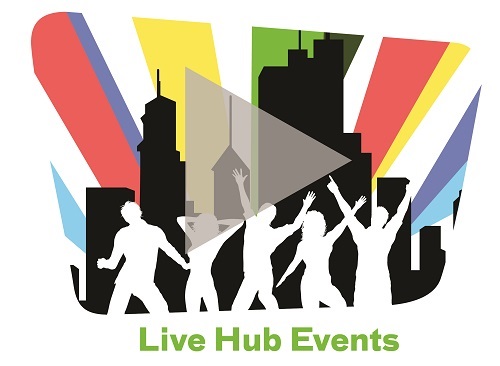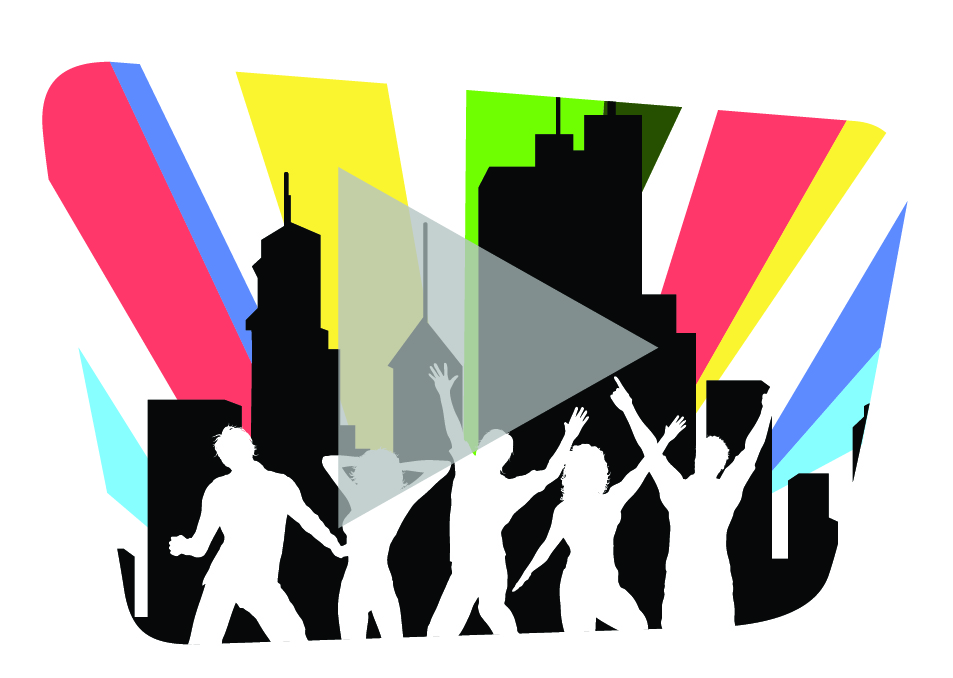April 23, 2020


The Cost Of Live Streaming An Event : An Event Planners Guide To Understanding Live Streaming
Live streaming events are not a new concept but it is new to a lot of event planners. There are tons of factors that go…
Live streaming events are not a new concept but it is new to a lot of event planners. There are tons of factors that go into determining the cost of live streaming an event. To understand the cost you must also understand some key terms and feature sets to be able to determine what that final price tag might end up being. That is why we put together this guide so if your thinking about broadcasting your next live event or holding a virtual event you can have a better idea of cost and functionality.
First, we will take a look at the factors that determine the pricing model of most live streaming companies and platforms. Then we will discuss the type of equipment that might be needed for your live stream and then talk a little bit about hosting small to large scale live streams or webinars.
We hope that this guide will help you understand not only the pricing for hosting this type of event but also the various components and decisions that go into this type of event that way you can choose the best service or company for your needs.
What factors determine the cost of a live stream?
Live streams can be everything from a single session or broadcast from one location to a multi-tier broadcast with breakout rooms and virtual one on one meetings. Figuring out what your event purpose is probably the most important factor in determining the cost of your virtual event. All the other factors are based on this one question so it is important to sit down and discuss why it is your hosting this virtual or hybrid event. After you determine that then here are a few other factors that determine the cost of the virtual platform.
Basic Cost Factors:
- Number Of Attendees.
- Cost of registration.
- How many days is your event?
- How many hours each day are you going to be streaming?
Above are a few of the basic questions that determine cost but we didn't want to stop there. Below are some more advanced questions to think about that could potentially help save tons of money for your virtual event.
Do you have an existing registration platform?
If you have an existing registration platform a lot of times you can integrate this into your webcasting platform through a simple excel sheet import. Some platforms may also offer integrations with your ticketing platforms like Ticket Tailor, Splash, Eventbrite, or bizzabo.
How do you want your attendees to access your event?
Another really important question to ask yourself is how do you want people to access your event. Are you hosting a free product demonstration? Maybe you just need to broadcast directly to Facebook or youtube live. Or, do you want your guest to go to a branded microsite for your event and log in with a password?
Do you want a small group or breakout room experience?
Perhaps a huge factor in cost is the functionality of your networking experience. There are very few platforms that can accommodate this breakout room experience. If you want your guests to be able to choose which sessions they are apart of and float back and forth between them then you may need to consider a much larger budget than expected. One way to do this more cost-effective however is by using "evergreen" content that is pre-recorded where people can look at the pre-recorded content at scheduled times and then have a moderator facilitate discussion during the content.
Do you need to be able to sell merchandise or have some type of store capability?
Does your event have a killer list of merchandise to sell? If you need to sell merchandise it is important to let your streaming provider know. Most platforms won't be able to directly accommodate this but you could ask them about incorporating a button to your Shopify store or Squarespace account.
Will you have multiple languages that you need to have your stream translated to?
If you are hosting an international event and have people from all overviewing your event then you might be considering using translators. When you get into this situation there are several different solutions you can ask your provider about. You can consider adding closed captions to your stream event and let viewers choose what language they need. Your streaming provider, of course, will have to be able to accommodate this. You can also consider using real translators and creating multiple streams for your different languages. This, however, will significantly add cost to your event as every stream could cost money depending on your agreement or platform choice.
All of these questions you should answer when reaching out to a live streaming production company. Regardless of if your trying to live stream your virtual event yourself or you want to hire a production company, you will also need to know some of the terminologies associated with live streaming.
Live Streaming Terms Every Event Planner Should Know.
Encoder - An Encoder handles the compression of the video signal. It can be a hardware encoder or software encoder and either will work in real-time to encode the video and send it to the web.
Codec - This is basically the format of the video much like you would find with Microsoft word. A Codec is an equivalent of pdf or word. The most widely accepted codec is h264 and is used by most platforms to stream video like on Facebook live.
RTMP - This is the address of where your video is going to be sent to. Some services will require an address, key, and a username and password to send a signal to their servers. This RTMP URL usually requires whats called a "port" to be open on your locations firewall. This port is basically a lane of access not unlike driving into a gated neighborhood. You have to have the right key or right number punched into the gate for it to open.
Upload Speed and Bandwidth - This is perhaps the number one thing that can make a good stream turn bad quickly. When you are planning a live stream it is important to look at what your network limitations areas this determines the quality of your stream. When talking about your bandwidth or upload speed you may hear people talking about Megabits.
Megabits is the measurement of how much data can be transmitted and received every second. Consumer internet packages usually give you a download and upload speed. When we are talking about live streaming the upload speed is the most important. You can test your internet speed at a website like Okla Speed Test.
Bitrate - Bitrate determines the quality or how clear your stream is. Have you ever tried to take a picture of a kid playing soccer with your cell phone? What about a high-speed camera? The bitrate of your stream is the difference between a cell phone or a super high-end camera. The higher the bitrate of the stream the more clear it will be when someone moves.
Framerate - Think of framerate as the number of pictures or "frames" there are in a second. Now imagine capturing a moving car. If you take one picture of a moving car every second you might not capture it traveling past you. Now imagine taking 60 frames per second. You would use a higher framerate in situations where you have a lot of movement. If it is just someone speaking you don't need 60 frames per second.
Resolution - is in regards to how many pixels your stream takes up, usually given in height and width. In most cases you'll want to stream in a 16:9 aspect ration, as this is the most commonly used display ration, this will ensure your viewers don't see any black bars, and it will take up their entire screen. Here are the most common resolutions (given in width by height):
- Standard Definition (SD): 560x480 - 480p
- High Definition (HD): 1280x720 - 720p
- Full High Definition (Full HD): 1920x1080 - 1080p
If a company is trying to sell you on a "4k stream" then chances are they are trying to take advantage of you. Most devices do not support 4k so there is no reason to try and even stream that high. However, if you are doing a record of your event it may be worth recording in that resolution.
What type of equipment do I need to live stream?
The gear you need again is dependent upon what type of experience you are looking for. Remember however that for most devices they will only be seeing the stream at 720p and 30 frames per second.
The first type of gear you need is a camera!
Cameras are important not necessarily for the resolution of the camera but for what type of light it needs for a clean image. If you buy a super cheap camera or your production company uses a cheap camera and there isn't enough light your image could be too dark or blurry.
You also need a camera that can output to your encoder. Consider if it has an HDMI, SDI, or USB output. Does this camera also allow audio to be inputted to it or will you need a separate device?
Getting Quality Sound Into Your Live Stream.
You guessed it you need some type of audio equipment to capture the audio for your stream. For basic streams with only one person, usually, a built-in mic would suffice. However, if you have to capture multiple people speaking then you might need to consider using a professional audio board with a lav ( or lapel) microphone. You can also look at using what is called a "shotgun" microphone which is highly directional.
Get your video and audio synced up and to the cloud!
Next, you will need an encoder as we talked about above. This can be a software or hardware solution. It can even be a phone or a tablet.
Don't forget the camera guy!
While you can make use of things like a tripod stand having a camera person to operate the cameras is super important. From troubleshooting any issues to moving the camera to the right angle a camera person can really make your live stream stand out.
You will also need a broadcast technician or someone to mix your stream. If you are having multiple locations and campuses and need to take multiple streams and make them into one then you will need a broadcast technician to mix your stream and manage the flow of the cast.
What is the estimated cost of live streaming an event?
With so many different factors it is hard to give you any particular range. For a simple live stream that is 4 hours per day for 3 days with 1000 viewers, you can expect to pay about 12-15k dollars. If you want to add things like branded sites, automated email reminders, ticket registration you could be looking between 25k and 100k for 1000 viewers.

